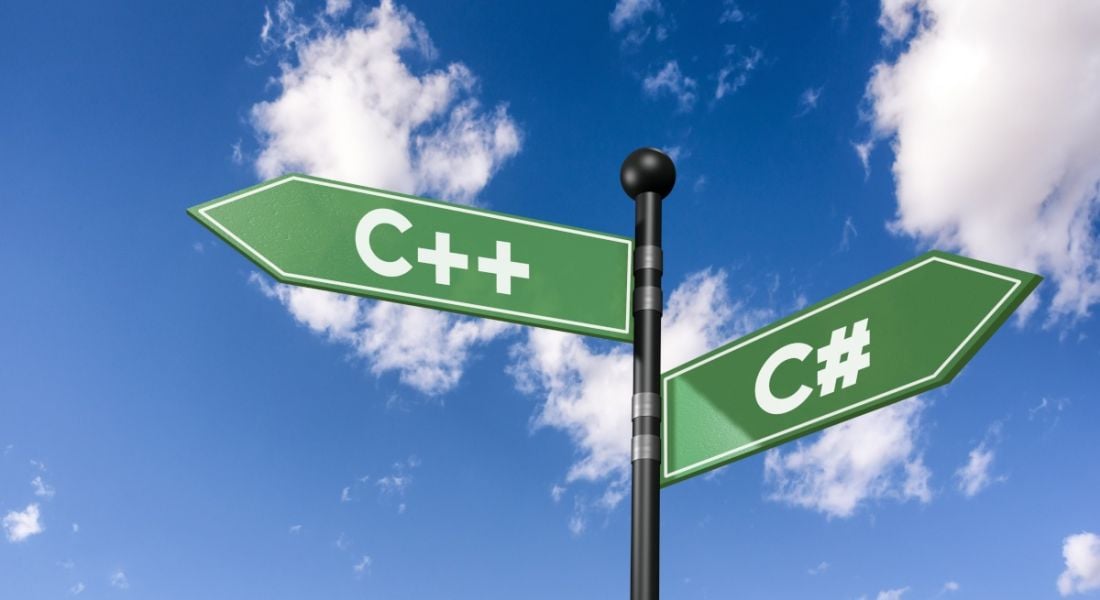Whether you’re looking for some tips on good learning paths or you’re completely new to C, C++ and C#, we have broken down some of the key points.
The C programming language family has been around for a long time now, so if you’re reading for tips on where to find learning pathways to boost your skills for C, C# or C++, keep reading until the end. First of all, we’ll explain a little bit about C and its sister languages C# and C++. For the uninitiated, C was born in the early 1970s, with C++ coming along in the mid-1980s followed by C# in the noughties. C is considered a low-level language and C++ is considered intermediate-level, whereas C# is high-level.
Despite being pretty old, the original C is still very widely used. Developers trust it for operating systems, kernel-level software, hardware drivers and even apps that need to rely on older code. It is not object-oriented, but that’s where C++ comes in. This language was inspired by C but with added object-oriented capabilities, so if you want to learn an object-oriented version of C, you could just plunge in and learn C++ if you prefer. Like C, it is used for operating systems, but it’s also used in PC software.
C# is probably the most advanced of the three languages as it is both high-level and object-oriented. It has a couple of additional features compared to C, such as type checking, bound checking and garbage collection. It is generally used for enterprise applications and it is based on the .NET framework. Of the trio, C# is probably the most different. If you’re already a confident programmer or you have some C experience or you want to learn a language for web-based development, C# is a good option.
Now that you have more grasp on the differences between each language, let’s take a look at some ways that you can learn each of them depending on which one(s) you’re most interested in.
Learning C
If you don’t have much programming experience, C is a good place to start as it is efficient, universal and very well-established. Simplilearn has an in-depth guide to C on its website, with some of the language’s key commands, uses and features. It also explains why it is a good language to learn and what kinds of careers are out there for people with C skills. If you know absolutely nothing about C and you have ruled out C++ and C# for the moment, it’s definitely a good starting point to find out more.
FreeCodeCamp.org also has a comprehensive guide to C, including some very basic beginner exercises.
Another good resource is this interactive tutorial by Learn C. It’s free and requires zero commitment.
Learning C++
If you’re looking for more in-depth explanations of C++ and why you should learn it, we have found several detailed guides to it. This explanation by e-learning provider Coursera breaks it down nicely and there’s a FAQ section at the bottom of the piece that answers questions such as ‘Can I learn C++ by myself?’ and ‘How long does it take to learn C++?’
Plus, there are links to some learning resources such as this short course that teaches you C++ skills by creating a Tic-Tac-Toe game. Who said programming can’t be fun?
Udemy has a course that claims to take learners from beginners to masters by the time they have completed it. Or if you’d prefer to just watch a YouTube video, this tutorial by FreeCodeCamp.org is a good bet.
Learning C#
Microsoft does a decent explanation of C# and its features in this piece which is quite up to date. And you can also learn using Microsoft’s C# video tutorials which are interactive and suitable for beginners.
If you’re unsure about C#’s advantages versus other languages like Java or even why you should learn it, Pluralsight breaks down any questions you may have very simply in this explainer piece.
This Codecademy course on C# is both free and easily doable in your downtime. The course’s website says it takes around 30 hours to complete and it is suitable for beginners.
Or if you’re strapped for time, this YouTube video gives you a whistlestop tour of C# in 100 seconds.
10 things you need to know direct to your inbox every weekday. Sign up for the Daily Brief, Silicon Republic’s digest of essential sci-tech news.




